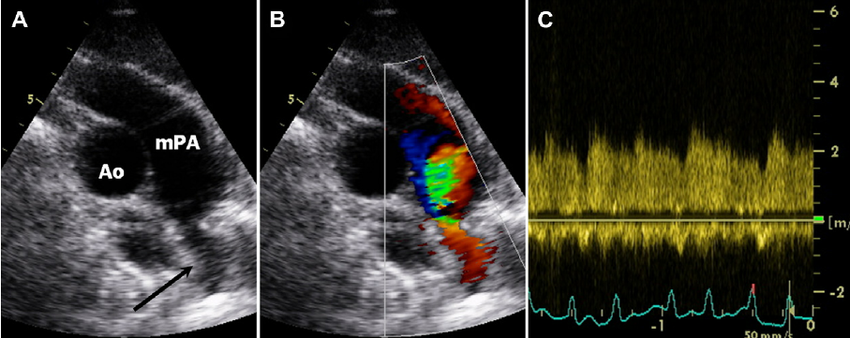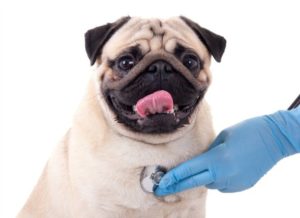What Does it Mean if My Veterinarian Hears a Heart Murmur?
Listening to your pet’s heart and lungs is a vital part of the annual physical exam. When we listen to your dog or cat’s chest we are listening to the type of sounds the heart beat produces as well as the rhythm of the heart beating.
When we detect a heart murmur, we are hearing turbulent blood flowing through the heart. This makes a whooshing sound instead of a clear “lub dub.”
Normal blood flow through the heart is “laminar.” This means that blood is flowing smoothly in one direction. A heart murmur is caused by blood swirling or flowing in different directions. This can be secondary to leaky heart valves, narrowing within the heart, or narrowed inflow/outflow tracts to the heart.
Does a heart murmur automatically mean there is significant heart disease?
No, there are diseases that can be present that induce heart murmurs with a normally functioning heart.
Non-heart related causes of heart murmurs can include anemia, hyperthyroidism, or a rapid heartrate.
Innocent heart murmurs occur when there is no structural heart abnormality. A heart murmur in a young kitten or puppy heard before 16 weeks may be characterized as “innocent” if it disappears when they are a few weeks older.
A loud heart murmur does not always correlate with increased severity of heart disease. Sometimes loud heart murmurs can be present with only mild changes in their heart structure. An echocardiogram study is recommended to evaluate a heart murmur. An echocardiogram is a detailed cardiac imaging using ultrasound.
My pet is very active and has never shown any signs of slowing down. Does that mean I should not be worried about the heart murmur?
We are always happy to hear that pets are active and energetic at home! Unfortunately, it does not mean that they can’t have significant changes to their heart function.
Sometimes pets with advanced heart disease show very few signs of slowing down until right before they develop heart failure, fainting from advanced heart disease, or sudden loss of limb function due to clots released by the heart.
What should I do if my vet hears a heart murmur?
The best tool to evaluate how well the heart is functioning as a pump is to perform an ultrasound exam of the heart called an echocardiogram. This is a heart study that looks at the heart valves, measures heart muscle thickness, records the strength of the heart as it pumps, and follows the path that blood flows through the heart. This test is best performed by a veterinary cardiologist.
What kinds of things can be done if my pet has heart disease? Is surgery needed?
Surgery for heart disease is rarely utilized. Most patients with heart disease are treated with medications that help the heart work more effectively as a pump and stabilize the heart rhythm. Supplements are often utilized and changes in diet are often recommended. Cardiologists also provide information regarding risks for elective anesthesia and recommendations for when and how to monitor the disease.


Dr. Cohen received her veterinary degree and completed an internship on the west coast before joining FHA in 2006. Her interests include senior wellness, ultrasonography, opthalmology, endocrinology, and urgent care medicine.
*Featured image courtesy of Dreamstime.com.

